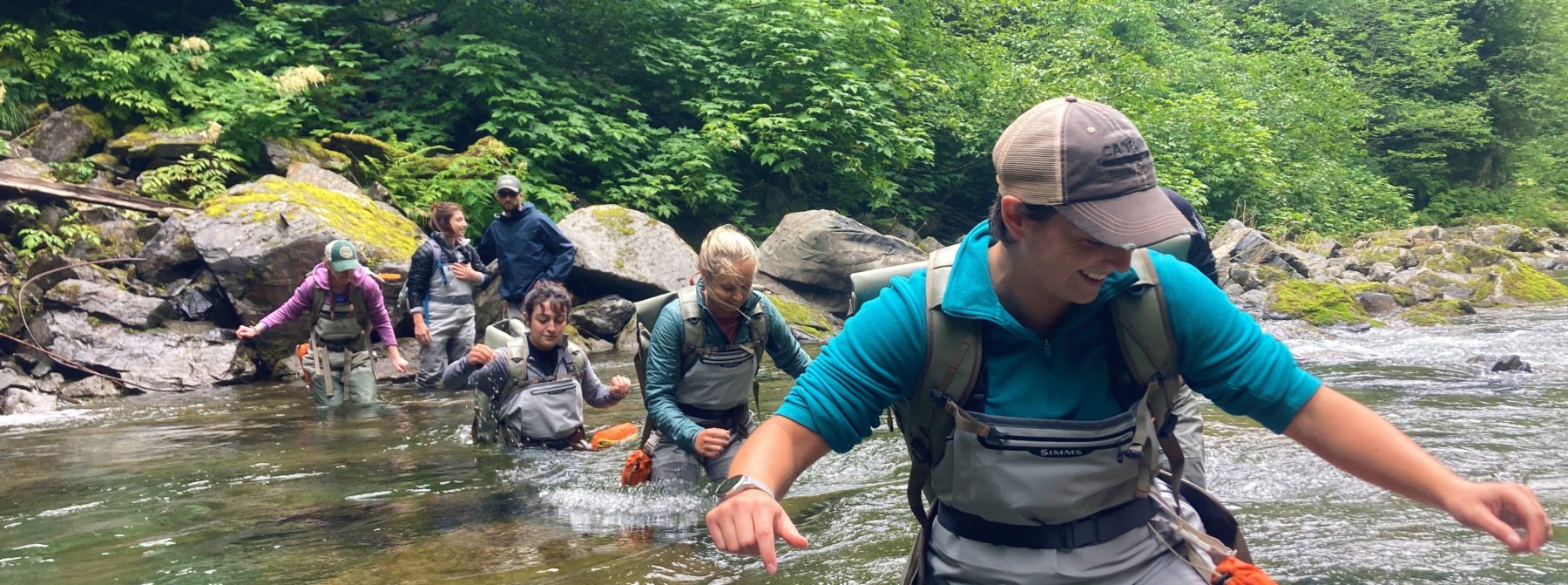
Research
Research
Research
From landslide risk to chum salmon surveys – 2021 Research In Review
Research at the Sitka Sound Science Center has never been busier in 2021. From landslide risk assessments to chum salmon surveys, researchers at SSSC strives to better understand the world around us. With this in mind, we would like to shine a spotlight on the many research projects our staff and visiting scientists were involved in this year.
Hatchery Wild Chum Interaction Project (The Chum Project): This multi-million dollar project aims to assess the interactions between wild and hatchery pink and chum salmon in Prince William Sound and Southeast Alaska. SSSC is contracted to conduct data collection on chum salmon for SEAK each summer. The project is currently funded by Alaska Department of Fish and Game until 2023.
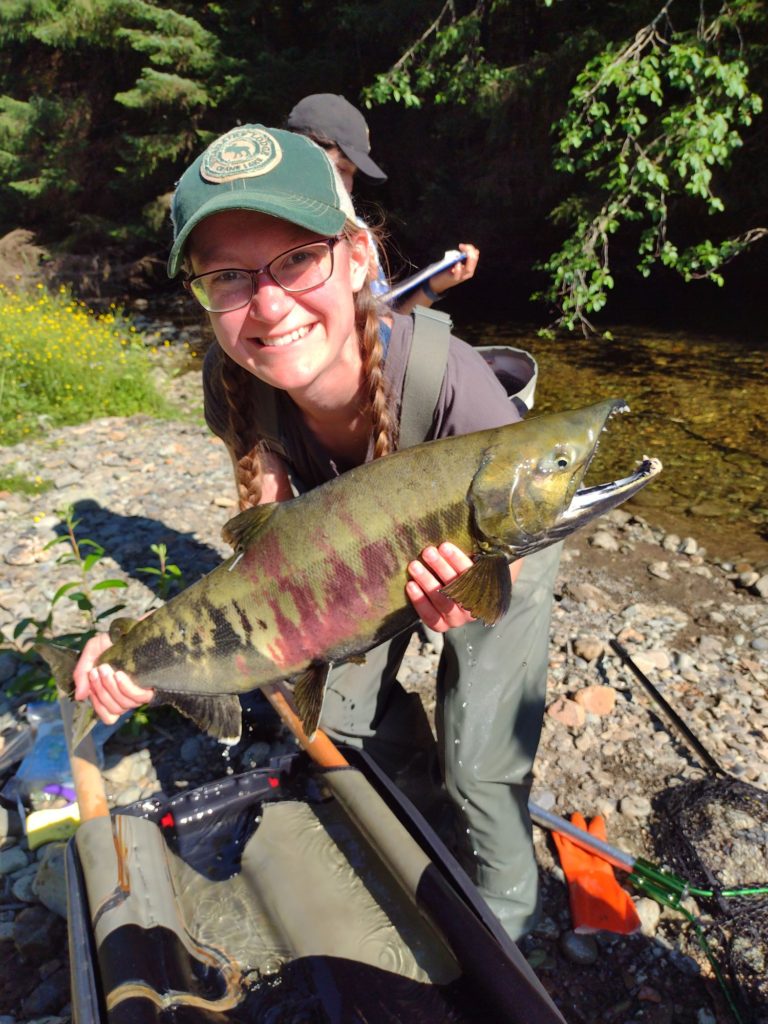
Gorgeous colors on this male chum salmon. 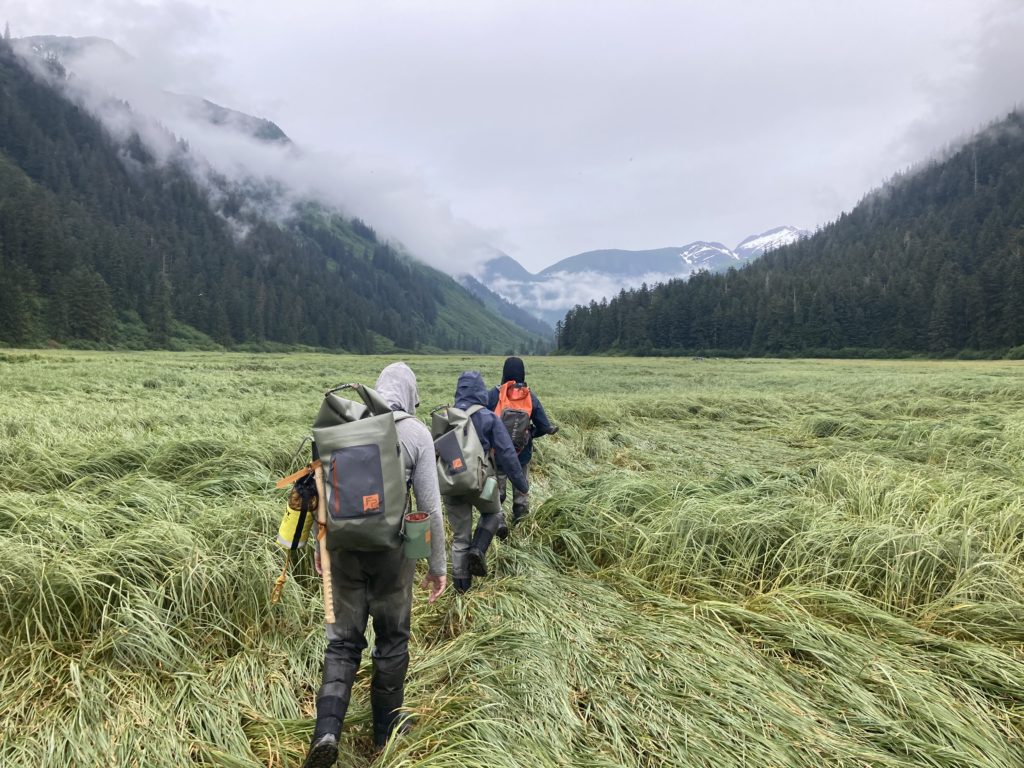
Chum crew in the field at Prospect Creek near Juneau. 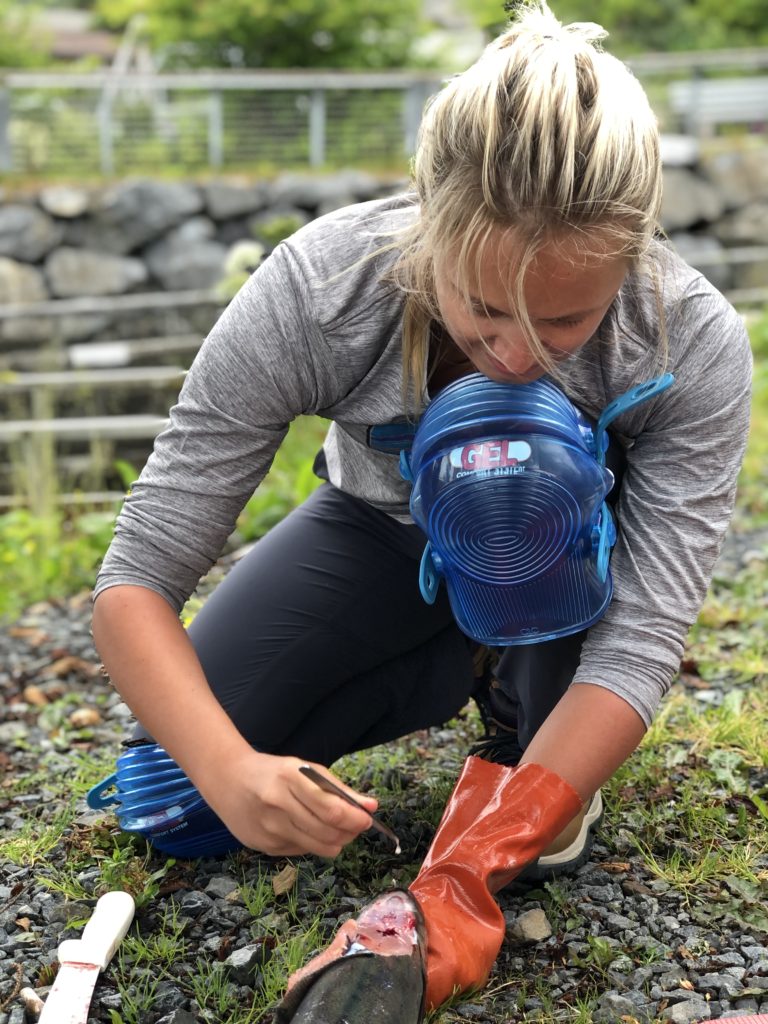
Practice makes perfect when learning how to remove otoliths! 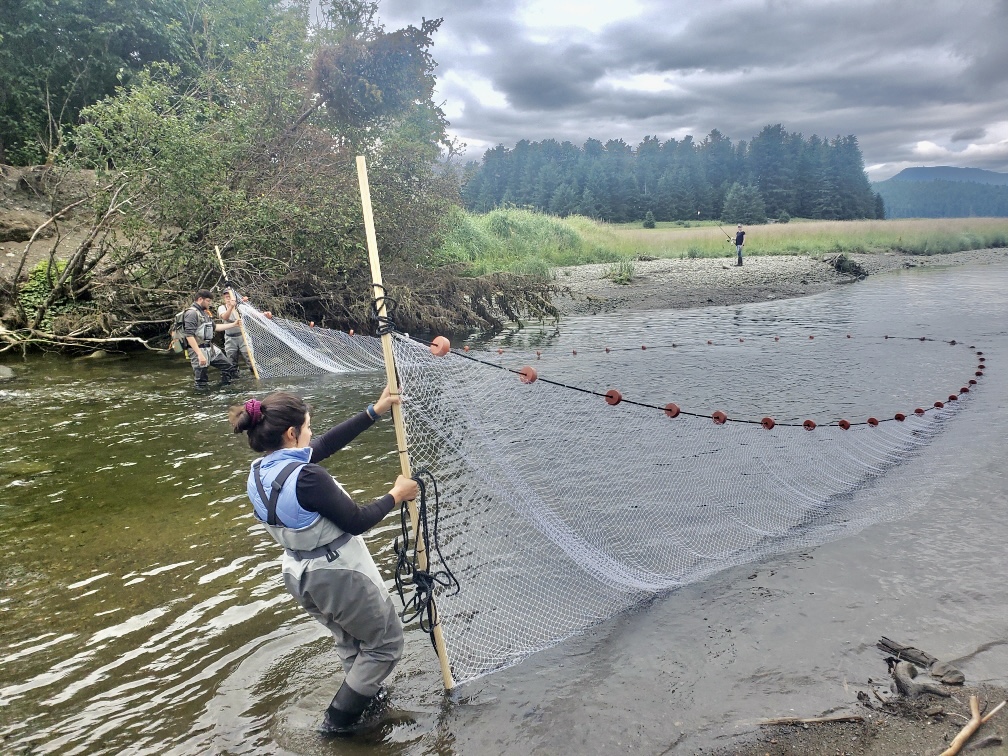
Crew using a seine net to capture chum salmon. 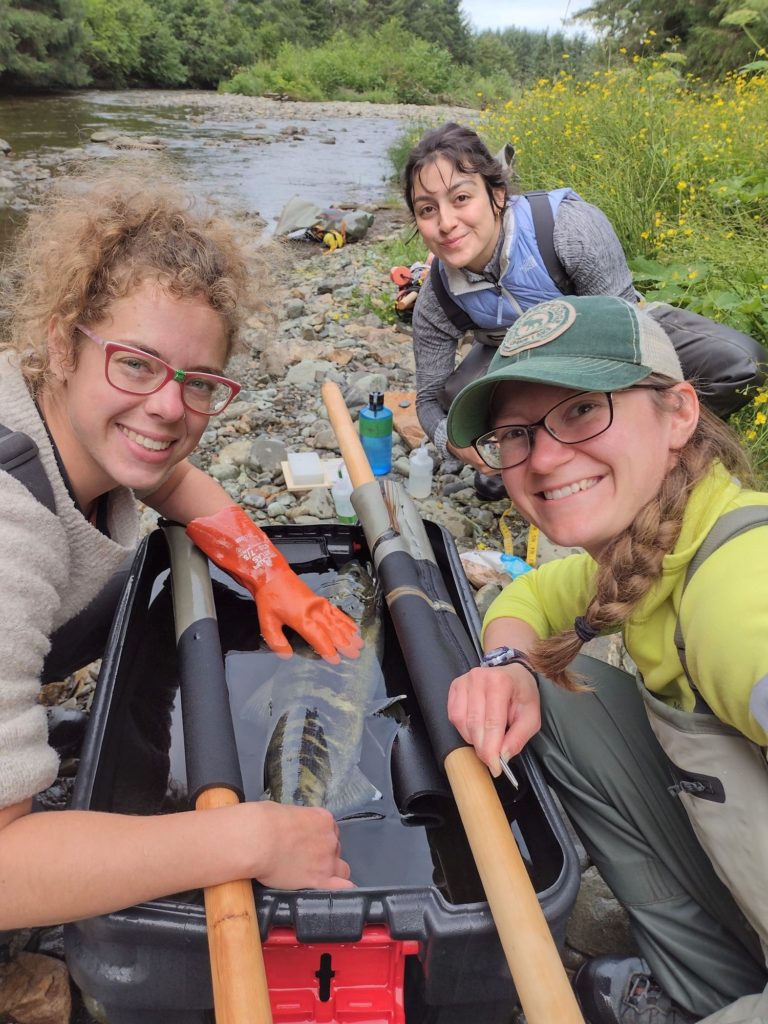
Getting ready to sample scales.
Southeast Alaska Attitudinal COVID-19 Surveys: SSSC, partnered with the Central Council of Tlingit Haida Indian Tribes and the RAND Corporation, studies people’s perceptions of COVID-19. The project is funded by National Science Foundation and uses quantitative surveys and qualitative interviews with tribal citizens to determine community member’s attitudes towards the pandemic and captures vital information needed for community response.
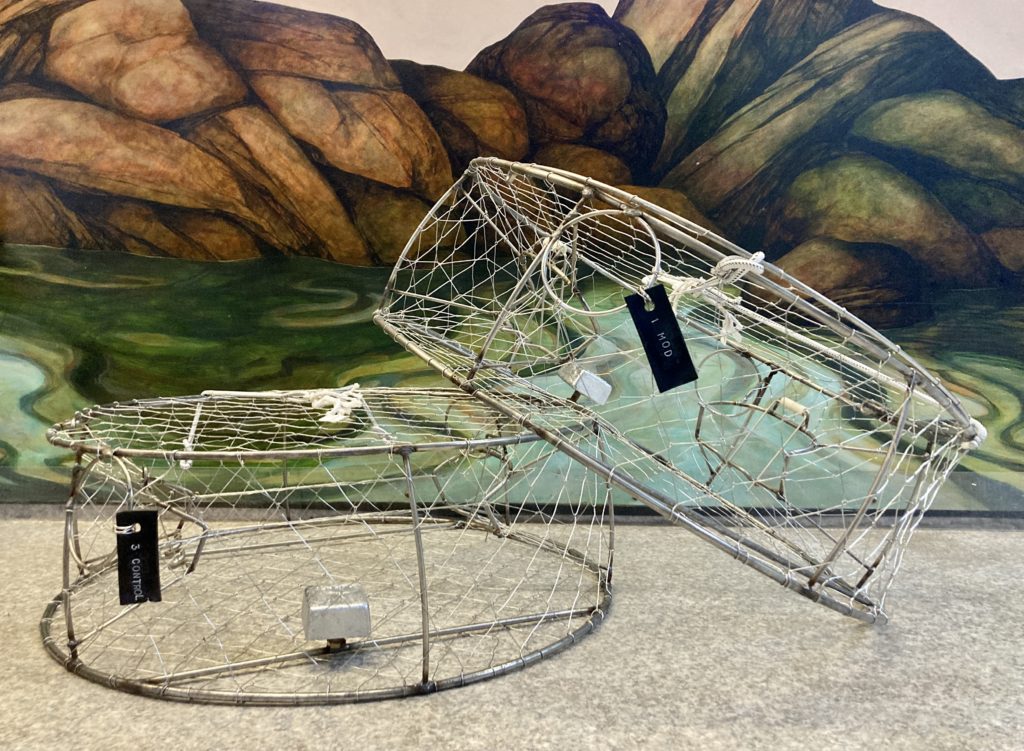
Bio-Hinge Crab Pot Project: In partnership with the Virginia Institute of Marine Sciences, SSSC assesses the efficacy of biodegradable polymer hinges to replace the current mechanisms that prevents ghost fishing, rot cord cotton, on Alaskan Dungeness crabs. SSSC partners with local recreational crabbers to test the efficiency of the polymer hinges. This project is in its second year and is funded for an additional third year!
North Pacific Research Board Bioenergetics of Pacific Cod: In partnership with NOAA, this project looks at the impact of temperature and food quality on the growth of juvenile Pacific cod, with a broad focus on how marine heatwaves are affecting commercial fish populations in the Gulf of Alaska.
The Belmont Project: Formally titled “Community collective action to respond to climate change influencing the environment-health nexus”. This three-year project, in partnership with the RAND Corporation, aims to understand how volunteer-based, local groups self-organize to respond to environmental changes that impact health.
Exxon Valdez Lingering Oil Project: SSSC, in partnership with NOAA and the Exxon Valdez Oil Spill Trustee Council, monitors established sites across Prince William Sound for the presence of oil. Data from this project is part of a time series of observations on the sequestered oil and is among the longest known records of spilled oil. SSSC staff in June of 2021 traveled to five beaches in Prince William Sound to survey for the presence of oil.
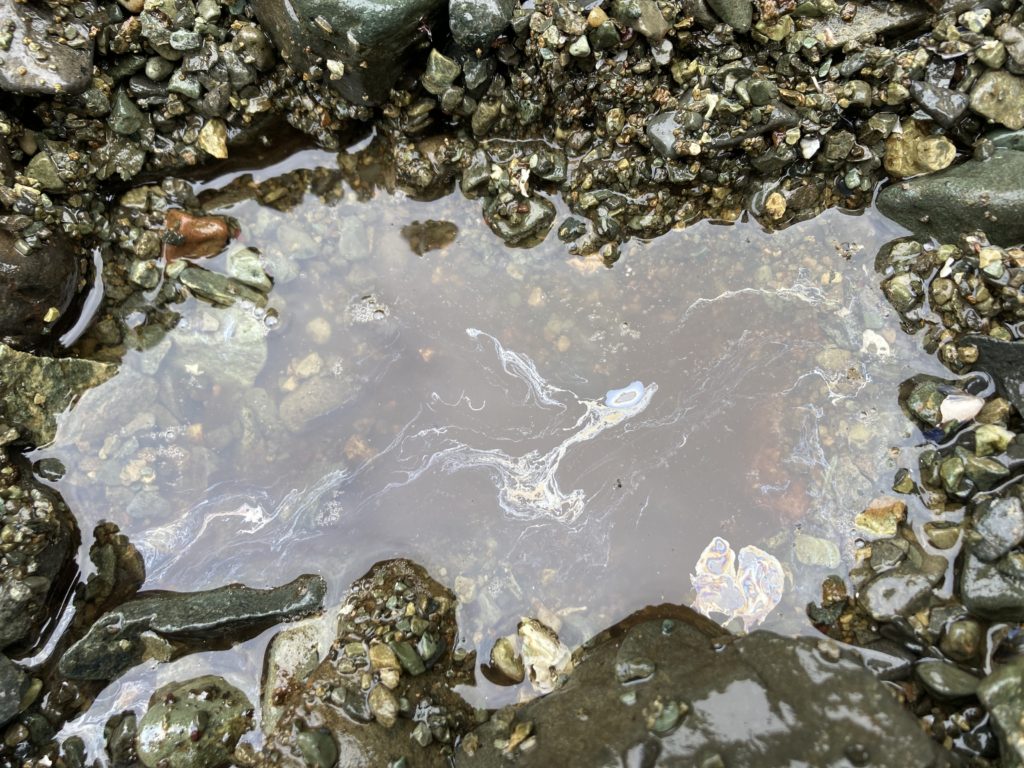
A prime example of lingering oil. 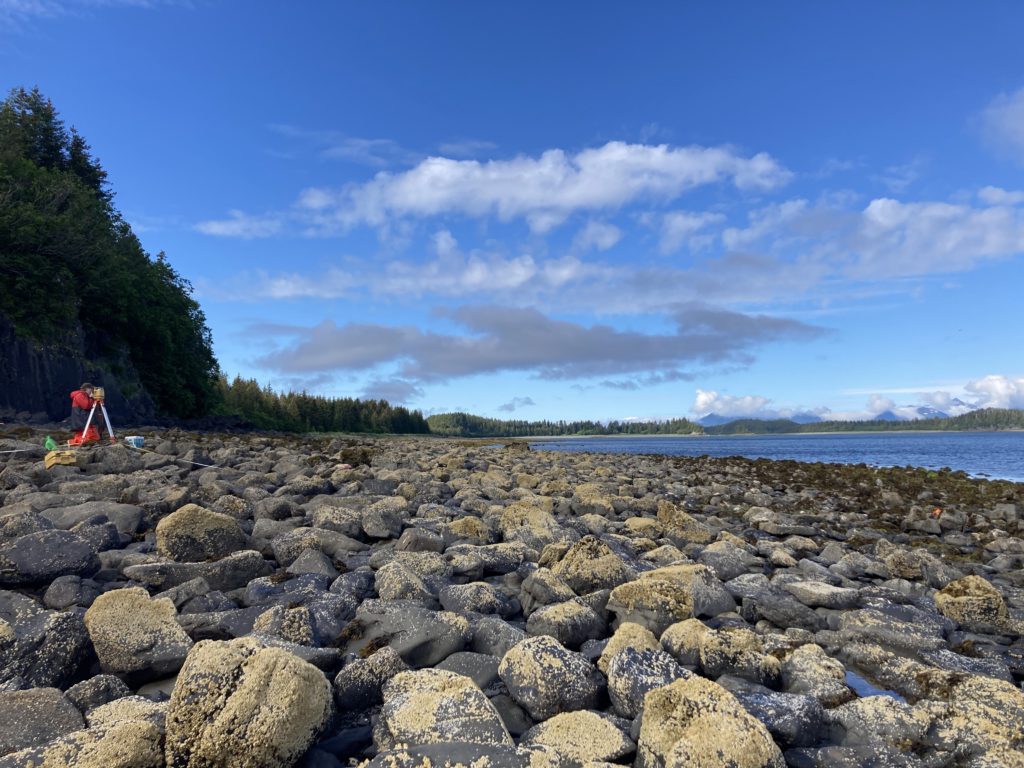
Surveying for oil in the beautiful rocky intertidal.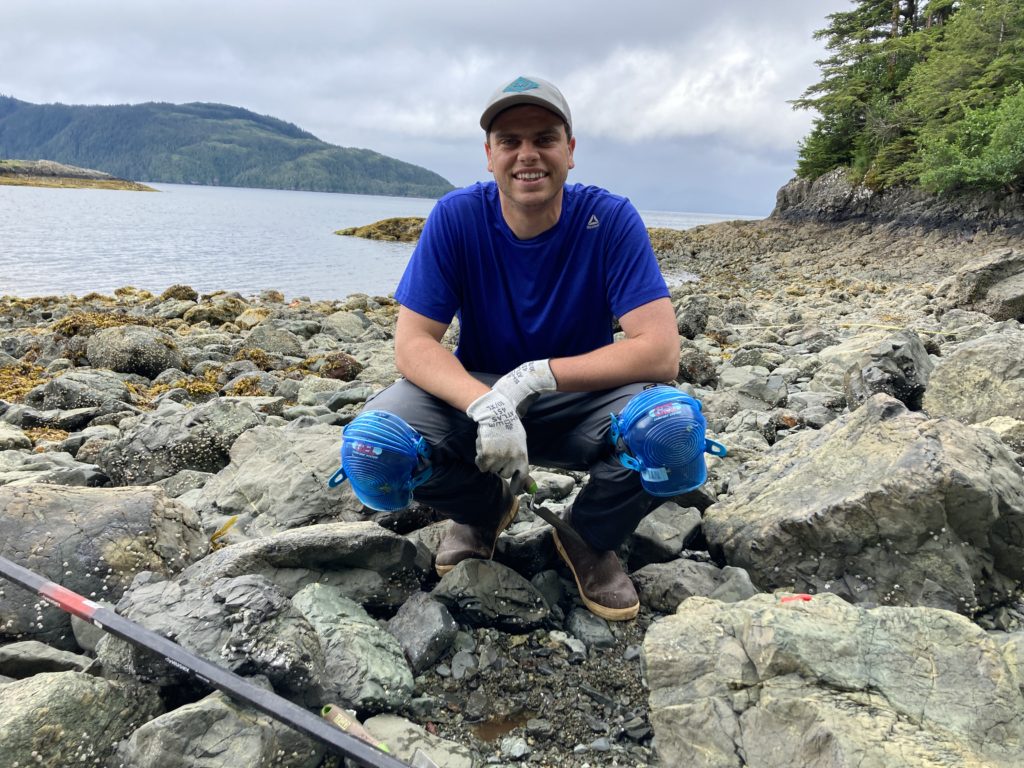
SSSC staff member Paul Cook in front of an oil survey hole.
Indian River Project: The Indian River Working Group was created to improve communication and cooperation between different agencies, nonprofits, businesses, and community members with interests in the Indian River watershed. The project aims to bring together stakeholders to develop a feasible watershed management strategy, engaging the Sitka Tribe of Alaska to facilitate group discussions, manage data, develop partnerships, and gain insights into watershed management techniques. This project is funded by the US Fish and Wildlife Service.
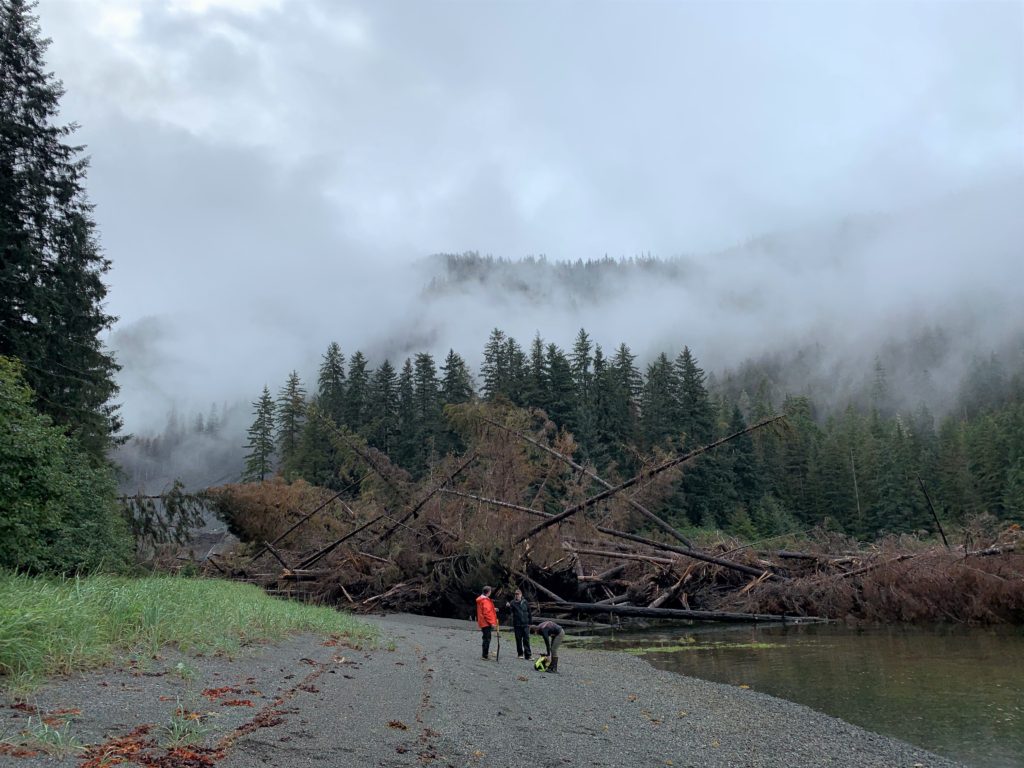
Crew at the bottom of a landslide in Patterson Bay. 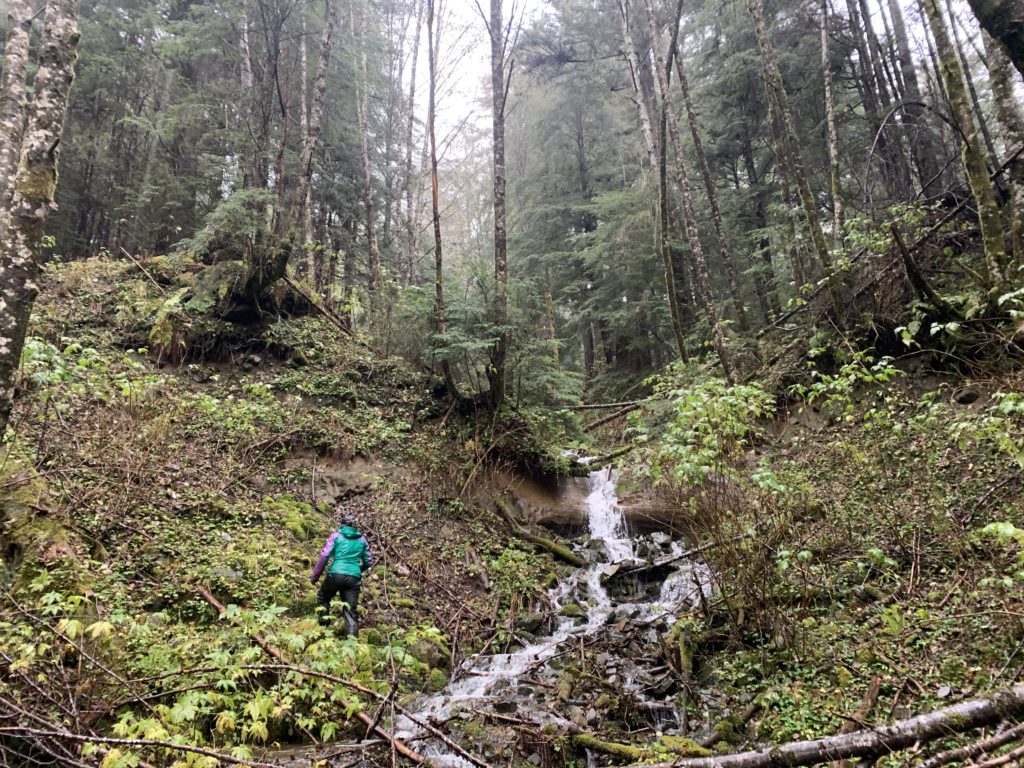
Dr. Annette Patton looks at geological layers off of the Cross Trail 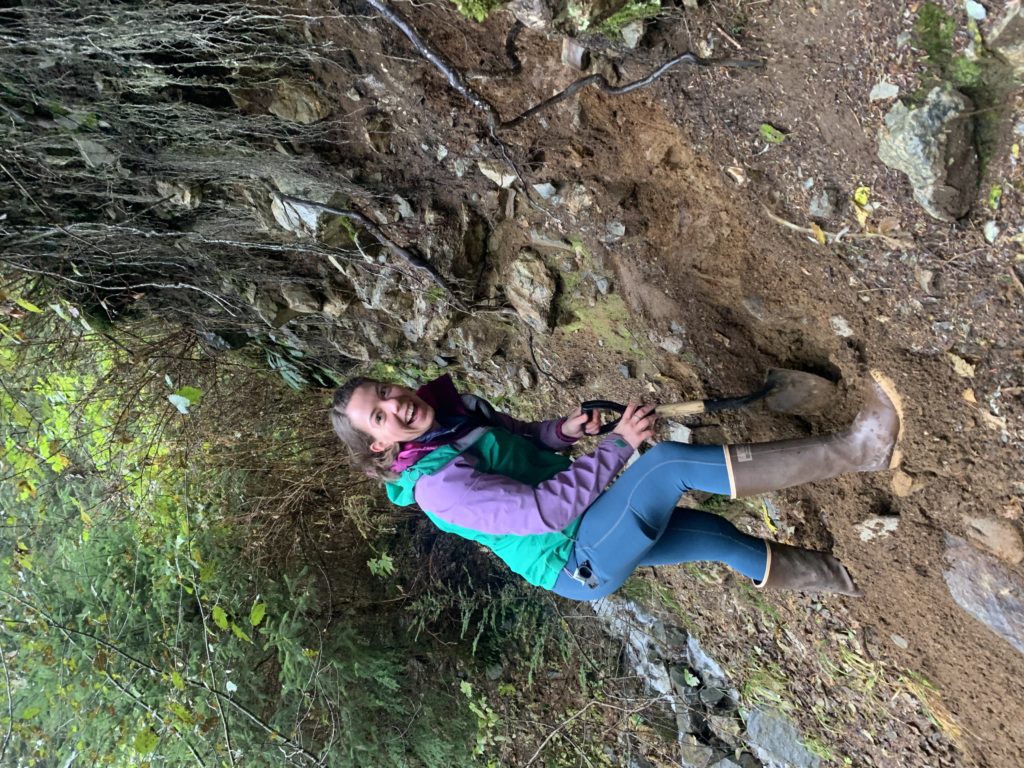
Colluvium layer surveying! 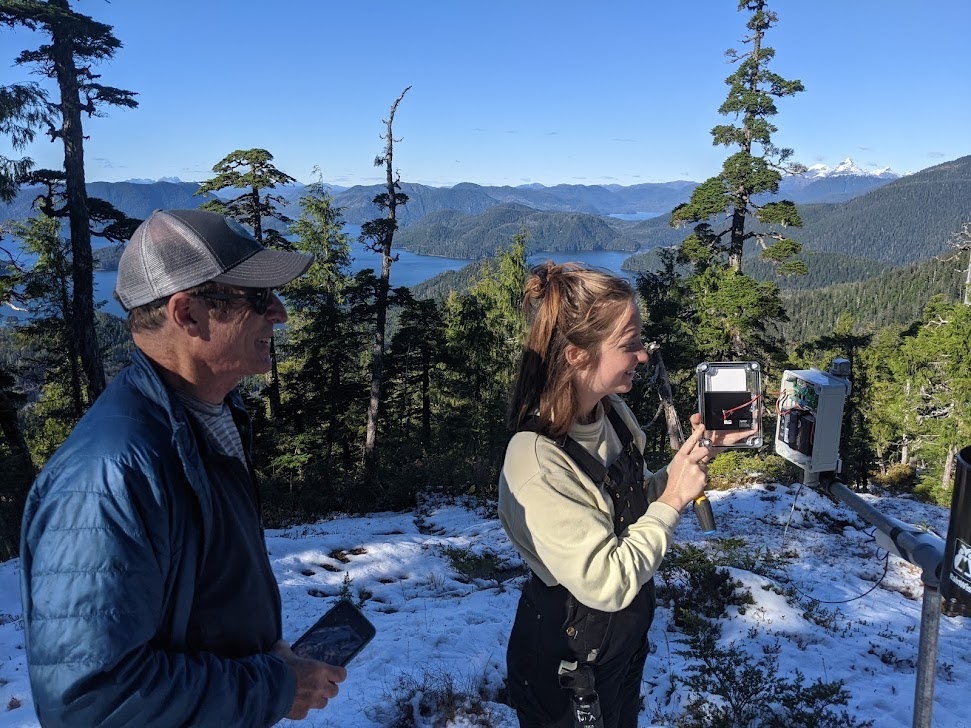
SSSC Geoscience Coordinator Jacyn Schmidt and Dr. Robert Lempert assessing a rain gauge sensor.
Landslide Project: This NSF funded three-year long project (currently on its last year) aims to develop a new sensor network and create communication channels to disseminate landslide risk in Sitka. The project is in partnership with the RAND Corporation, the University of Oregon, the University of Southern California, Sitka Tribe of Alaska, and the Division of Geological and Geophysical Surveys and in collaboration with the National Weather Service, U.S. Geological Survey, and U.S. Forest Service.
Queen Charlotte Fairweather Fault Project: SSSC is part of a group studying the depths of the northeast Pacific offshore of Alaska and B.C., Canada, to better understand hazards associated with the Queen Charlotte Fault. In 2017, SSSC, the U.S. Geological Survey, Geological Survey of Canada, and the University of Calgary joined forces to examine the entire length of this poorly understood fault. Gary Greene, former SSSC Scientist in Residency Fellow, brought this project to us. The principal investigators for this project are Maureen Walton from USGS and Lindsay Lowe Worthington from the University of New Mexico.
Coastlines and People (COPE): This NSF funded project will soon have SSSC deploying environmental sensors in locations near small communities in SE Alaska to assess landslide, flood, or avalanche risk in 2022.
